NATO Deserved Nobel More Than EU
My latest for The National Interest, "Why NATO Should Have Won the Nobel," is out.
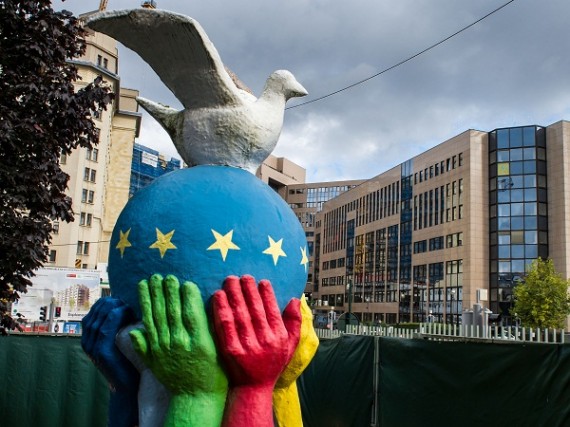
My latest for The National Interest, “Why NATO Should Have Won the Nobel,” is out. It’s a little stale given the vagaries of the publishing schedule. The main piece was written Friday and the coda submitted Saturday morning but the magazine publishes weekday mornings.
Regardless, the thrust of the piece is that the ostensible reason for the award, the EU’s contributions to “the advancement of peace and reconciliation, democracy and human rights in Europe,” is rather odd in that NATO, the presence of US forces, the Marshall Plan, and the like all had much more to do with it than an organization that gradually came into fruition and didn’t even emerge into a full-blown free trade area until long after the threat of intra-European major power war had ended.
Cynics might attribute this oversight to a reluctance to acknowledge that “peace” is not the highest value; sometimes, it takes war or the threat of war to defeat fascism, deter communist aggression and help people gain freedom from the oppression of ruthless dictators.
But a simpler explanation is more likely here: that the ostensible rationale for the award is not the actual reason.
[…]
While disguised as an award for past accomplishments, the prize is really a prod for future action. The Nobel committee wants to remind Europeans of how far they’ve come in order to kept them—if not get them—on the track to cooperation in solving today’s crisis and thus preserve the European ideal for future generations. If they can actually do that, it will be a prize well deserved, indeed.
It would not, of course, be the first time that the gentlemen of the committee used a Peace Prize to spur future action. The record of success is, alas, decidedly mixed.


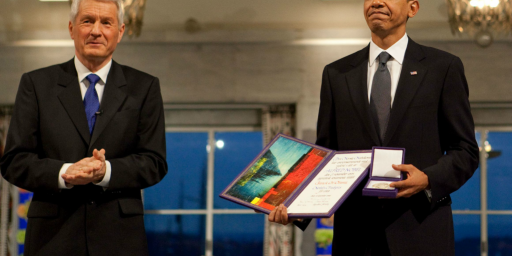
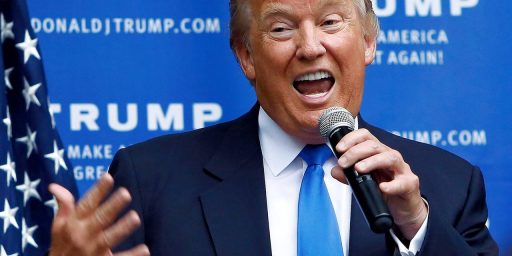
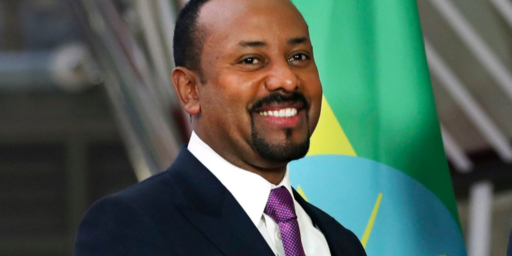
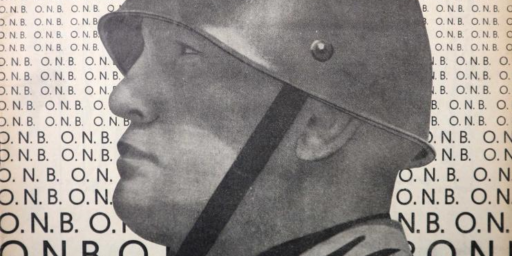
I’m glad you wrote that, James. It saved me the trouble of doing it because I had the same thought.
Is anyone seriously worried about EU states going to war with each other?
I guess they got tired of giving it to activists who risk their lives for things like justice, civil rights, and peace. Instead they’re giving it to Western bureaucracies (EU) and politicians (freshly elected Obama).
Still nothing approaching the dark comedy of Kissinger and Arafat winning, though.
I think the issue here is the development of the common European identity that the EU has brought about, which is not being tested with the Euro crisis. The success of the EU in creating the European identity as opposed to the individual nation’s in the union has been the hallmark achievement in creating a large democratic union which hopefully will mark in end to the centuries of ethnic and religious wars. Will it succeed? Who knows, but (aside from the Balkans) the last half century has been a very good time to be European.
@DC Loser: To the extent a trans-European sentiment has displaced nationalism–and I’m skeptical it has to any large degree—it’s been gradual and presumably a function of lack of wars more than a causal factor in same.
NATO DOES NOT deserve The Nobel Price more than the EU. It is true that NATO has contributed a lot to peace in Europe and indeed around the world. The EU has also contributed to peace in Europe, it has ensured that there will never be wars again between its member states and elsewhere in Europe. One major thing that James and some other people are ignoring is the EU’s contribution to development, especially in Eastern Europe, not just economic development but also development in other areas. The enormous advantages of being a member of the EU means that everyone wants to join. Every country that have joined the EU have had to meet a strict set of criteria. Countries that have joined and have aspirations to join the EU have made a lot of reforms in their judiciary, governance, transparency, regulations and elsewhere in order to meet the necessary criteria for EU membership. These reforms have transformed the lives of tens or even hundreds of millions of people. THIS is the main reason that the EU deserves The Nobel Price and deserves it over NATO. The EU was given the price because of what it has already achieved, which is enormous, not what the Nobel committee hopes it will achieve in the future.
@Barfour: But that’s not what the Committee is arguing, either. And, for that matter, NATO has done as much as the EU in bringing former Soviet Bloc countries into the West.
Crediting NATO would mean validating the idea of peace through strength and admitting the essentially benign nature of American power. Unlikely.
Heck, if we’re talking about organizations that have had effect on peace via economic development, might as well give it to WIPO or OHIM….
What’s even more interesting is that in Europe we’re seeing the dying away of the old nation-state and the re-emergence of both a host of smaller domestic entities (Scotland, Catalonia, Northern Italy) trying to gain footing as well as larger, more encompassing entities (EU, etc.)
We’re just going back to an earlier historical period. Early Renaissance Italy = collection of city-states, under the aegis of (Papal states) or (Holy Roman Emperor.)
I find it interesting that Norway (where the Peace Medal Committee hail from) is not a member of the European Union, but rather affiliated with the EU by being a member of EFTA (European Free Trade Area – ditto Switzerland and Iceland).
Well, the Norwegians are sort of removed from the EU masses by a body of water, and their neighbor Sweden also isn’t a member of the EU. It’s a smart move since they get to keep their Kroner, held up by their vast oil revenues, and they can fund their welfare state as they see fit.
It ´s not NATO or EU. In fact, few Americans understand that the main reason that the French and the vilified Chamberlain looked like to be weak against Hitler was because no one in Europe was willing to see another Great War. Hitler was possible because the need to pay the economic reparations of Versailles and the Depression transformed Germany in a economic basketcase.
I don´t think that after the blood bath of two World Wars the Europeans would want to see a Third.